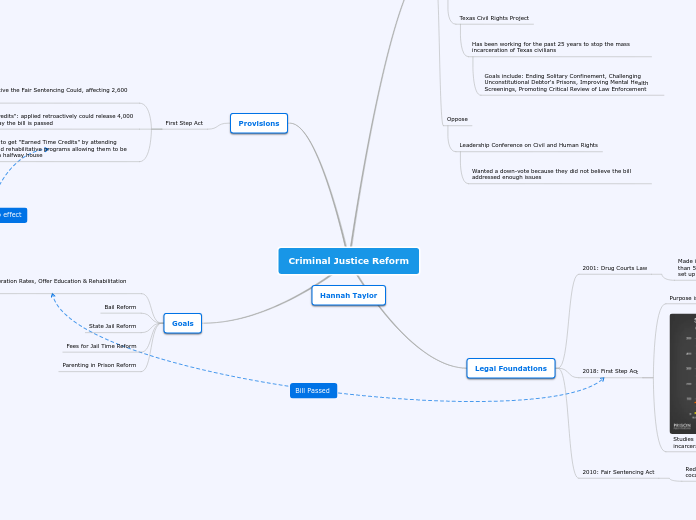Hannah Taylor
Criminal Justice Reform
Goals
Parenting in Prison Reform
Fees for Jail Time Reform
State Jail Reform
Bail Reform
Lower Incarceration Rates, Offer Education & Rehabilitation Programs
Provisions
First Step Act
Allow inmates to get "Earned Time Credits" by attending educational and rehabilitative programs allowing them to be released into a halfway house
"Good Time Credits": applied retroactively could release 4,000 inmates the day the bill is passed
Would retroactive the Fair Sentencing Could, affecting 2,600 inmates
Legal Foundations
2010: Fair Sentencing Act
Reduced sentencing from 100:1 to 18:1 between crack cocaine and powder cocaine
2018: First Step Act
Studies show that the act probably will not affect actual incarceration by much
Purpose is to reduce 50% of inmates nationwide
2001: Drug Courts Law
Made it compulsory for all jurisdictions in Texas with more than 550,000 people to apply for federal and other funds to set up drug courts
Interest groups
Oppose
Leadership Conference on Civil and Human Rights
Wanted a down-vote because they did not believe the bill addressed enough issues
Support
Texas Civil Rights Project
Has been working for the past 25 years to stop the mass incarceration of Texas civilians
Goals include: Ending Solitary Confinement, Challenging Unconstitutional Debtor's Prisons, Improving Mental Health Screenings, Promoting Critical Review of Law Enforcement









